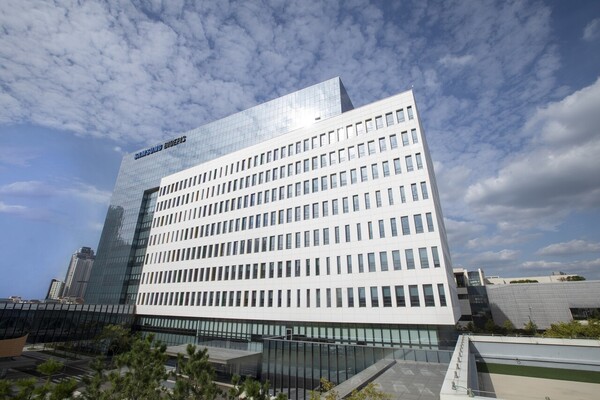Samsung Bioepis said it domestically released Epysqli (ingredient: eculizumab), a biosimilar referencing Soliris, at a much lower price than the original, on Monday.

Soliris, developed by Alexion Pharmaceuticals and marketed by AstraZeneca, is used for treating rare conditions such as paroxysmal nocturnal hemoglobinuria (PNH) and atypical hemolytic uremic syndrome (aHUS).
The drug is an ultra-expensive biopharmaceutical with an annual treatment cost of about 400 million won ($295,857) for an adult. Thus, there was an urgent need to expand patient access and lower financial burden through biosimilar development, observers said.
To enhance patient access to these critical medications, Samsung Bioepis has significantly reduced the price of its biosimilar, the company said.
The upper limit of Soliris’ reimbursed drug price stood at about 5.1 million won per vial, before Monday. Samsung Bioepis has halved this price to about 2.5 million won per vial.
The biosimilar's price is approximately 30 percent cheaper than the new price of Soliris set at 3.6 million won per vial from Monday.
Samsung Bioepis said it is not only focusing on price competitiveness but on patient support.
According to Samsung Bioepis, the company plans to roll out a patient support program for Epysqli.
Samsung Bioepis conducted a global phase 3 clinical trial for PNH patients from Aug. 2019 to Oct. 2021.
Considering the high cost of PNH treatment, Samsung Bioepis provided the product free of charge for up to two years to patients who participated in the trial. Also, the company obtained approval for the therapeutic use of investigational medicines to support the treatment of separately screened patients.
“However, details about the extent of support through the newly planned patient support program for Epysqli are still under discussion with related organizations and we cannot reveal the exact extent of the support program,” a Samsung Bioepis official told Korea Biomedical Review.
Related articles
- Soliris reimbursement in NMOSD treatment offers hope for relapse-free lives
- Korean regulator OKs Samsung Bioepis’ Soliris biosimilar
- Soliris demonstrates long-term effectiveness in Korean PNH patients
- Samsung Bioepis initiates global phase 3 study for Keytruda biosimilar
- Samsung Bioepis secures 1st approval in Korea for Stelara biosimilar
- Samsung Bioepis gains European approval for Stelara biosimilar
- Handok's new PNH drug Empaveli wins nod in Korea
- Breakthrough for NMOSD patients: AZ's Soliris now covered by health insurance
- Samsung Bioepis propagates efficacy of Epysqli for rare diseases at ERA 2024
- Samsung Bioepis' Epysqli proves clinical equivalence to Soliris at European meet

